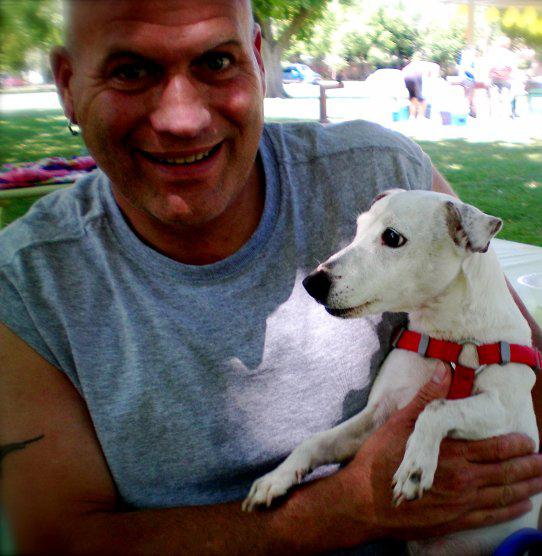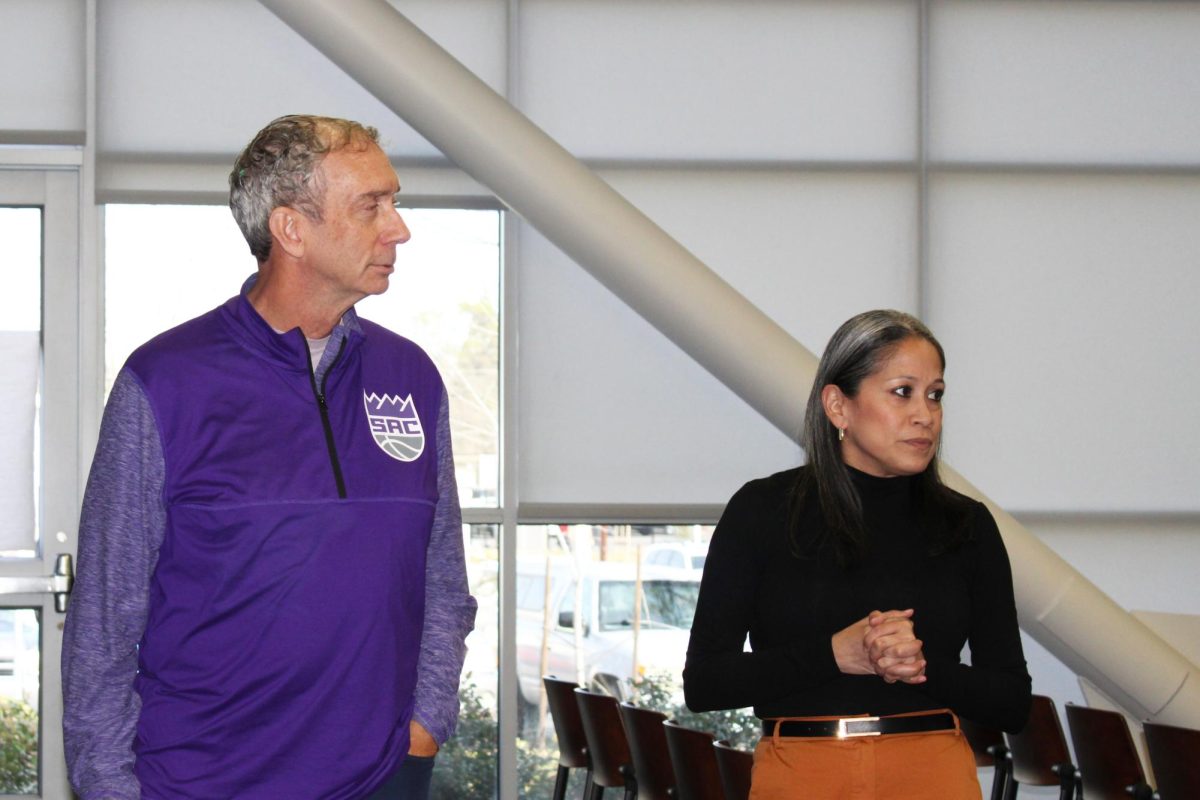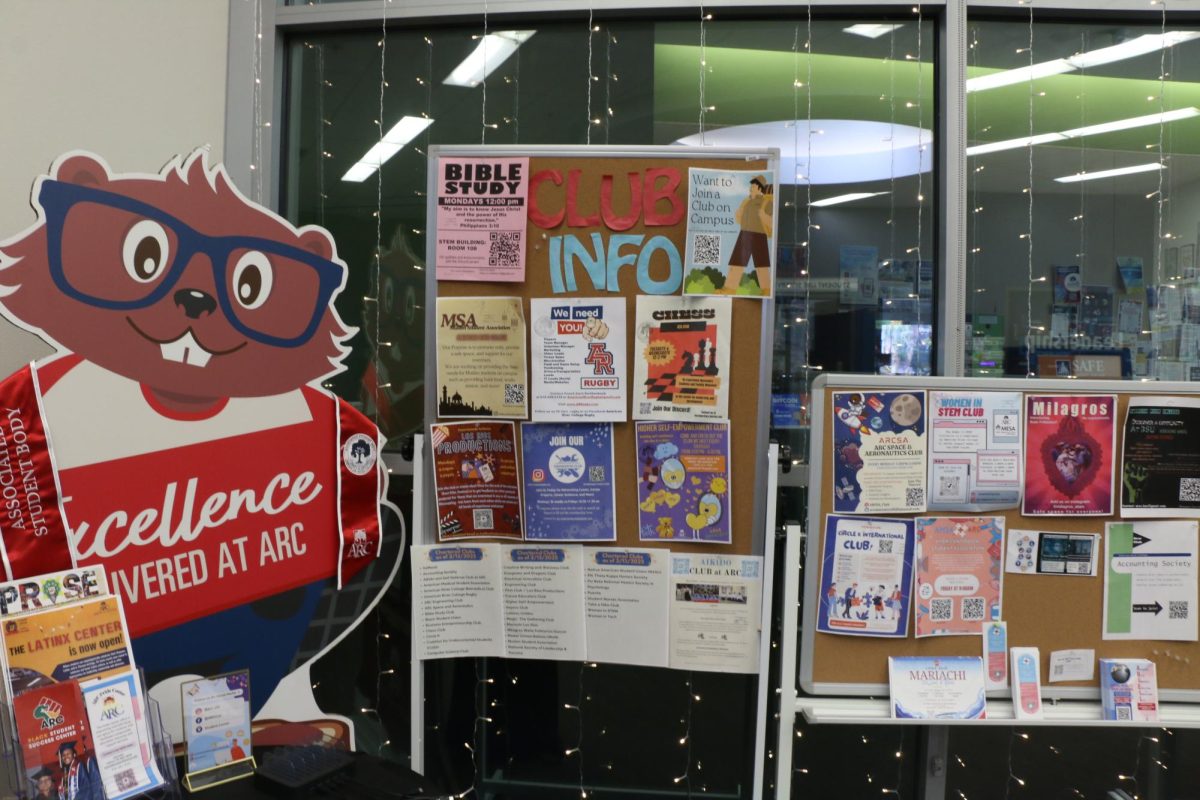Sitting in the waiting room, he told himself to calm down.
The results would surely come back negative. Even though he had known the risks of having unprotected sex, he thought that this could never happen to him.
Moments later, a nurse walked over and greeted him with a thin smile. Then she gave him the news that would change his life forever.
In 2004, Clyde Wade, currently an American River College student, was diagnosed with HIV. One month later, he was at University of California, Davis Medical Center, his body besieged by AIDS.
“I let the virus be in my body for evidently a long time before I knew it,” Wade says matter-of-factly in his warm Texas accent.
It was at that point that Wade started on a journey of helping others to protect themselves against the disease. Now 50, he spends his days attending classes, working as an intern at The Effort, a health center in Sacramento, and speaking to audiences about HIV and AIDS awareness, including students at ARC.
His message is a timely one. Currently, more than 1.7 million Americans are living with HIV. Locally, according to the California Department of Public Health Web site, as of June 2011 in Sacramento County there were “1,319 cases of people living with HIV and 1,767 cases of people living with AIDS.”
Wade realizes that each number represents an individual story and struggle, and it’s this humanistic view that informs his presentations and helps him connect with students.
“I know that I reach (students) better when I get on their level,” he says. “If I talk in medical terms then they are going to be bored out of their minds, and think they are in a biology class. But if I talk in real terms about what they are doing every day, who they are having sex with, and how they are having it, that opens their minds, opens their ears. They are like, ‘What did that guy say?’”
In person, Wade appears lively and healthy, but on the inside, he says he needs some repair. In addition to living with AIDS, Wade recently underwent heart surgery. He received radiation treatment last year for Kaposi Sarcoma, a skin cancer that’s prevalent with people with AIDS. Wade also has a brain tumor at his brainstem that doctors cannot remove.
Despite his health struggles, he continues to offer others his message of self-respect and self-care, talking to students in Professor Kelly Rummelhart’s human sexuality class in the fall of 2011.
“Clyde is one of the most dynamic speakers I’ve ever had in my class,” Rummelhart says. “He has the ability to be educational, funny, honest and loving all in the hour-and-a-half he is presenting. (He) gives you the permission to care about yourself.”
Wade has come a long way since he received his initial diagnosis. Back then, he felt angry at the fact that someone gave him this virus. He was also having financial problems at the time, and found himself homeless.
Ultimately, the despair was too much for him and he said he was looking for a way to end his life. He went to CARES — Center for Aids Research, Education and Services — the largest nonprofit HIV and AIDS clinic in Sacramento, and found help. Wade remembers a nurse named Emily saying: “If you hang in there, you’ll save lives.”
It was the first time in a long time that anyone expressed any care for him. A month later, Wade went back to CARES and got the strength to find the support he needed. He became one of the pioneers of CARES’ Positively Speaking program, which encourages people living with AIDS to share their stories and educate others about the disease.
Wade says that he finds strength in the idea that “I can share hope with others.”
These days, Wade takes life’s journey one step at a time. He makes the effort to take his dog Hootie to the park for a walk every day, and sits back to enjoy the beauty that nature has to offer.
“I have had ups and downs,” he says. “But I have been able to balance and realize that as long as I have a breath, and as long as I have a voice, or a way to write, I can benefit this world. I can be a benefit to you.”
lentzj@imail.losrios.edu







